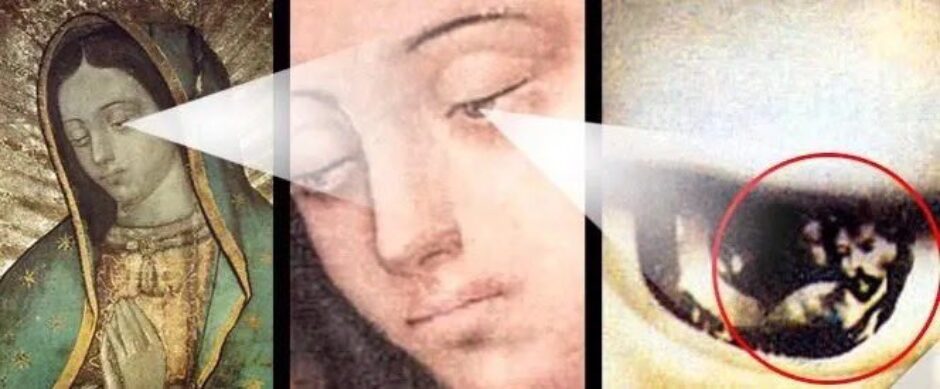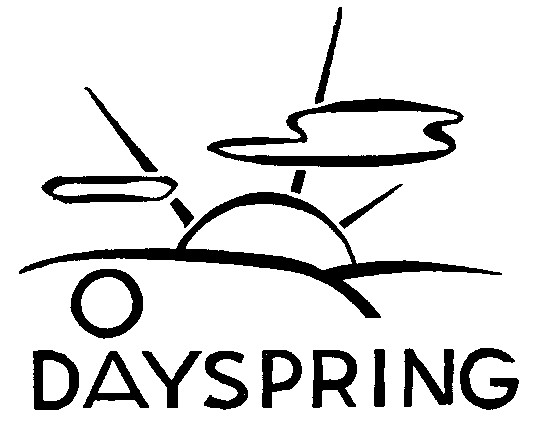I think you have all seen it happen.
As the time for Holy Communion approaches, a small throng of EMHCs troop up into the sanctuary.
On the blog Uncommon Sense there is a proposal, worth reading and passing around. I include the whole thing here so as to make it a bit more visible. Be sure to visit that blog, however.
His emphases in the original but with my emphases and comments.
Whereas the General Instruction for the Roman Missal 162 states: “The priest may be assisted in the distribution of Communion by other priests who happen to be present. If such priests are not present and there is a very large number of communicants, the priest may [not must] call upon extraordinary ministers to assist him, e.g., duly instituted acolytes or even other faithful who have been deputed for this purpose. In case of necessity, the priest may depute suitable faithful for this single occasion.
And whereas the Instruction “Redemptionis Sacramentum” in paragraph 88 states “Only when there is a necessity may extraordinary ministers assist the Priest celebrant in accordance with the norm of law.”
And whereas the same instruction in paragraph 151 states: “Only out of true necessity ["necessity"… sensing a theme yet?] is there to be recourse to the assistance of extraordinary ministers in the celebration of the Liturgy. [NB…] Such recourse is not intended for the sake of a fuller participation of the laity but rather, by its very nature, is supplementary and provisional. [I don’t know how many times I have heard priests and laypeople talking about giving laypeople something to do during Mass.] Furthermore, when recourse is had out of necessity to the functions of extraordinary ministers, special urgent prayers of intercession should be multiplied that the Lord may soon send a Priest for the service of the community and raise up an abundance of vocations to sacred Orders.”
And whereas the same document states in paragraph 158: “Indeed, the extraordinary minister of Holy Communion may administer Communion only when the Priest and Deacon are lacking, when the Priest is prevented by weakness or advanced age or some other genuine reason, or when the number of faithful coming to Communion is so great that the very celebration of Mass would be unduly prolonged. [The problem is that "necessity" and "unduly" can be loosely interpreted and there isn’t really any way to tighten up the meaning.] This, however, is to be understood in such a way that a brief prolongation, considering the circumstances and culture of the place, is not at all a sufficient reason.
And whereas the Vatican instruction “On Certain Questions Regarding the Collaboration of the Non-Ordained Faithful in the Sacred Ministry of Priest” states in Article 8 § 2: “Extraordinary ministers may distribute Holy Communion at Eucharistic celebrations only when there are no ordained ministers present or when those ordained ministers present at a liturgical celebration are truly unable to distribute Holy Communion. They may also exercise this function at Eucharistic celebrations where there are particularly large numbers of the faithful and which would be excessively prolonged because of an insufficient number of ordained ministers to distribute Holy Communion.
And whereas the same document at the end of Article 8 states: ”To avoid creating confusion, certain practices are to be avoided and eliminated where such have emerged in particular Churches: the habitual use of extraordinary ministers of Holy Communion at Mass thus arbitrarily extending the concept of “a great number of the faithful.” [Again, this practice, as it is usually observed today tends to blur the distinct roles of priest and laypeople in Holy Mass.]
And whereas the conclusion of the same document states: ”All particular laws, customs and faculties conceded by the Holy See ad experimentum or other ecclesiastical authorities which are contrary to the foregoing norms [On Certain…] are hereby revoked.” [In other words, they cannot be continued out of an excuse that it is local custom.]
And whereas in “Norms for the Distribution and Reception of Holy Communion Under Both Kinds in the Dioceses of the United States of America” paragraph 24 states: ”In practice, the need to avoid obscuring the role of the priest and the deacon as the ordinary ministers of Holy Communion by an excessive use of extraordinary ministers might in some circumstances constitute a reason either for limiting the distribution of Holy Communion under both species or for using intinction instead of distributing the Precious Blood from the chalice.” [Intinction also gets rid of Communion in the hand…]
And whereas the same norms in paragraph 28 states: ”When the size of the congregation or the incapacity of the bishop, priest, or deacon requires it, the celebrant may be assisted by other bishops, priests, or deacons. If such ordinary ministers of Holy Communion are not present, “the priest may [not "must"] call upon extraordinary ministers to assist him, i.e., formally instituted acolytes or even some of the faithful who have been commissioned according to the prescribed rite. In case of necessity, the priest may also commission suitable members of the faithful for the occasion.” … When recourse is had to Extraordinary Minister of Holy Communion, especially in the distribution of Holy Communion under both kinds, their number should not be increased beyond what is required for the orderly and reverent distribution of the Body and Blood of the Lord. In all matters such Extraordinary Ministers of Holy Communion should follow the guidance of the diocesan bishop [Mindful of the fact that this paragraph draws its authority from GIRM 151 which speaks only of instances where a great number of the faithful are gathered, and it is the competence of the Holy Father alone, and of no bishop or priest, to legislate anything in the liturgy against the norms which the Holy Father has duly set forth].
[All that having been laid out…] We put forth the following observations:
Observation 1: The habitual use of extraordinary ministers at Masses in the United States is in fact a violation of the norms set forth in “On certain questions.” In most parishes across this country are even scheduled weeks ahead of time.
Observation 2: The majority of these Masses are not attended by “a great number of the faithful” and thus this term is being arbitrarily extended in violation of the norms of the Holy Father set forth in “On Certain Questions…”.
Observation 3: In point of fact, aside from being viewed as supplementary and provisional, extraordinary ministers are being utilized in such a way that they believe that their ministry involves a fuller participation in the Eucharistic celebration, in violation of the norms set forth by the Holy Father in “Redemptionis Sacramentum.”
Observation 4: The continued unnecessary recourse to the use of extraordinary ministers continues to blur the distinction between the ordained and lay members of the Catholic Church.
[Therefore] And in light of the above observations we submit the following petition:
Petition: Considering the constant violations of the norms set forth above, we humbly ask you [bishops and priests] to implement the provisions set forth in the Norms for the United states, namely that Holy Communion normally be distributed only by the ordinary minister, under one species [the Host], or by intinction in those parishes and communities where the faithful wish to receive under both species.
































The Novus Ordo masses at the churches I regularly attend eschew this practice. However, I was recently away from my usual haunts and attended Saturday evening mass at the local parish church nomina sunt odiosa. Apart from an excess of chatty introduction at various points, the rite was celebrated with reverence. There were about 50 in the congregation. However, at the time for Holy Communion, no less than three Extraordinary Ministers appeared – all women, all wearing trousers, one in a dayglo anorak.
It jarred horribly with me, it was ugly (the church itself was beautiful), and it was unnecessary.
I have been in larger parishes for most of the last twenty years, but there just haven’t been THAT many people there.
I can’t help but suspect that if things were not made so convenient the people would step up to the plate. Who knows, there might be more use of confession as well. The last three times I’ve gone there was nobody in the booth and nobody waiting; I walked straight in and got to work. To convey an idea of sample validity, I go about biweekly in a beach town parish of ~800 families.
At the weekday mass at my local parish (around 10-15 people) there is always at least EMHC
I understand my bishop requires EVERY Mass to offer Communion under both kinds. Thus, at my one-priest parish, even daily Mass (with 20-30 people) “requires” an EMHC for the chalice.
I would add an ammendment: “Those pastors who enjoy the benefit of a parochial vicar (or any other priest in residence) or a deacon should employ such ministers in the distribution os Holy Communion at all parish Masses as possible.
Jeff Pinyan brings up a good point. It seems to me that if distribution of the Holy Blood would require an EMHC, such distribution should not take place, since it is clearly not a “true necessity”.
A few years ago, I submitted a dubium to the CDWDS about the use of EHMCs. Specifically, I asked whether the desire to distributed Holy Communion under both kinds constitutes a “necessity,” which is a requirement for the use of EHMCs.
I never received a reply.
I’ve talked to a deacon about why he doesn’t help with Communion when he is present. Whenever he wasn’t scheduled to assist at Mass and was present in the congregation in layman’s clothes, he’d receive from a EHMC. He told me, “We’ve already had that discussion.” Apparently, people get their feelings hurt, or some nonsense like that.
This “spirituality” that laymen have adopted while being EMHC’s is very strange. A pastor would get more in trouble for breaking up a troop of EMHC’s than for denying the Creed. And should you mention to a EMHC that they should be praying for the day when their role will no longer be “needed”, they’d look at you like you were crazy.
A lot of parishes, however, have adopted EMHCs because it is cheaper than bringing in priests on stipend each weekend to help out. Lay volunteers are free!
This is a big mess, and I pray that this problem is not allowed into the Extraordinary Form.
I am an EHMC at my parish. We are scheduled for every Mass.
I did a lot of thinking before answering the plea in the newsletter. While I think it is unnecessary, I thought it better that someone more orthodox be a volunteer than someone less orthodox. That way, if we do ever get disbanded, it’s one less person complaining!
EMHC’s are an example of the exception becoming the norm. The exception should go back to what it is – an exception. The same approach has been used with Communion in the hand. Most churches don’t even mention that receiving on the tongue is the norm, let alone even possible. Of course, in receiving the Consecrated Host, one receives the full Body, Blood, Soul, and Divinity of Our Lord. Receiving the Precious Blood is not required.
I wanted to comment on this thread when it first appeared but couldn’t so I’m a bit late. I never asked to be an EMHC and I really wish I had given the matter much more thought before I accepted. Nonetheless, with much help from the Holy Spirit, I felt I had no choice but to give notice that I am no longer willing to participate in this abuse. I don’t think my pastor is peeved at me but if he is, I can live with it before I can live with profaning the Eucharist. I cringe when I see what goes on, not so much in our own parish but in others where ordained priests are sometimes pushed aside so an EM can be made to feel important. The adage if something doesn’t feel right it probably isn’t certainly applies in my case. We never have so many people attending our Novus Ordo Mass that there is an actual “need” for EM’s. For the life of me, I don’t know why some priests are willing to allow lay people to appropriate what rightfully and exclusively belongs to the ordained. I worry that if I hadn’t been introduced to the TLM, I would not have recognized the abuses that go on. Now I’m having an issue with lay people as lectors. Too many theatrics and improvisation of words that are not contained in the sacred texts. I nearly died yesterday when the lector interrupted the priest during the final blessing to ask if he could address the congregation. Granted, the man is not exactly a bastion of mental health, but still! How did things ever spiral so far out of control? When you say Save the Liturgy, Save the World, I believe you are really on to something. God Bless you.